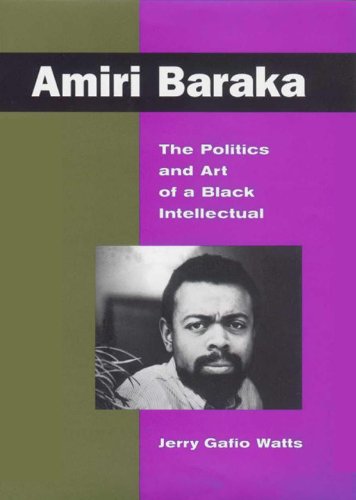

Most ebook files are in PDF format, so you can easily read them using various software such as Foxit Reader or directly on the Google Chrome browser.
Some ebook files are released by publishers in other formats such as .awz, .mobi, .epub, .fb2, etc. You may need to install specific software to read these formats on mobile/PC, such as Calibre.
Please read the tutorial at this link: https://ebookbell.com/faq
We offer FREE conversion to the popular formats you request; however, this may take some time. Therefore, right after payment, please email us, and we will try to provide the service as quickly as possible.
For some exceptional file formats or broken links (if any), please refrain from opening any disputes. Instead, email us first, and we will try to assist within a maximum of 6 hours.
EbookBell Team

4.4
62 reviewsAmiri Baraka, formerly known as LeRoi Jones, became known as one of the most militant, anti-white black nationalists of the 1960s Black Power movement. An advocate of Black Cultural Nationalism, Baraka supported the rejection of all things white and western. He helped found and direct the influential Black Arts movement which sought to move black writers away from western aesthetic sensibilities and toward a more complete embrace of the black world. Except perhaps for James Baldwin, no single figure has had more of an impact on black intellectual and artistic life during the last forty years.
In this groundbreaking and comprehensive study, the first to interweave Baraka's art and political activities, Jerry Watts takes us from his early immersion in the New York scene through the most dynamic period in the life and work of this controversial figure. Watts situates Baraka within the various worlds through which he travelled including Beat Bohemia, Marxist-Leninism, and Black Nationalism. In the process, he convincingly demonstrates how the 25 years between Baraka's emergence in 1960 and his continued influence in the mid-1980s can also be read as a general commentary on the condition of black intellectuals during the same time. Continually using Baraka as the focal point for a broader analysis, Watts illustrates the link between Baraka's life and the lives of other black writers trying to realize their artistic ambitions, and contrasts him with other key political intellectuals of the time. In a chapter sure to prove controversial, Watts links Baraka's famous misogyny to an attempt to bury his own homosexual past.
A work of extraordinary breadth, Amira Baraka is a powerful portrait of one man's lifework and the pivotal time it represents in African-American history. Informed by a wealth of original research, it fills a crucial gap in the lively literature on black thought and history and will continue to be a touchstone work for some time to come.